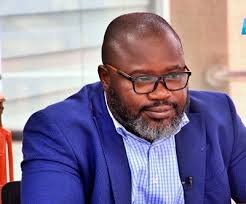Kofi Asare, the Executive Director of Africa Education Watch (Eduwatch), has endorsed the National Democratic Congress (NDC)’s proposal to uncap the Ghana Education Trust Fund (GETFund). He believes this step is essential for unlocking significant funding for educational infrastructure.
During a presentation on Joy News’ PM Express, Asare emphasized that without uncapping the fund, Ghana’s educational infrastructure needs will remain unmet due to inadequate funding, even with the best planning efforts in place. He highlighted that the financial limitations currently affecting GETFund hinder its ability to drive transformative change in the education sector.
“Asuncapping GETFund could generate approximately ¢25 billion more over the next four years,” he stated. While the capped fund is projected to yield around ¢25 billion, uncapping it could potentially double that amount to an estimated ¢50 billion.
Asare pointed out that these additional resources could facilitate extensive infrastructure development, particularly in under-resourced areas, where some students currently learn outdoors. “I view the focus on uncapping GETFund as a much more realistic approach to addressing infrastructure issues,” he stressed, describing the ongoing infrastructure challenges in education as fundamentally a financial problem.
While the New Patriotic Party (NPP) has proposed harmonizing various infrastructural databases to improve project planning and implementation, Asare maintained that substantial funding is essential; otherwise, any infrastructure initiative would have limited effectiveness. “The NPP emphasizes harmonizing the database and establishing a department within the Ministry of Education for planning and implementing infrastructure projects, but without addressing the core issue of resource limitations, those efforts won’t make a significant impact,” Asare stated.
In contrast, the NDC has promised to address infrastructure problems by removing the cap on GETFund if they come to power. According to Asare, this approach would unlock funds critical for addressing fundamental infrastructural issues in schools, such as eliminating outdoor classrooms and building modern facilities in underserved communities.
He concluded with a direct appeal to Ghana’s political leaders, urging them to prioritize the uncapping of the GETFund to support meaningful educational reform. “The fundamental issue regarding infrastructure is the lack of resources,” he insisted, advocating that uncapping the fund is the key solution to effectively address Ghana’s educational infrastructure needs.










